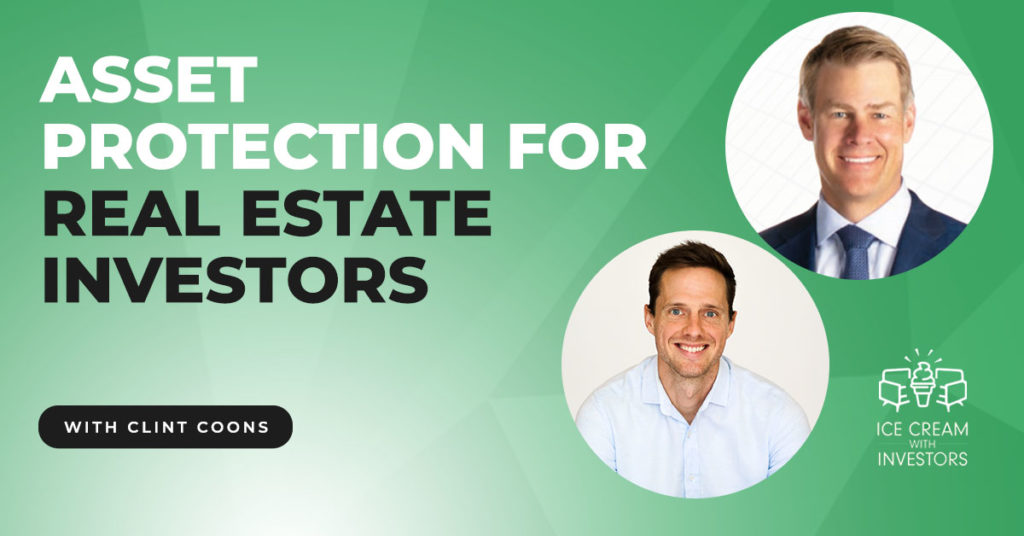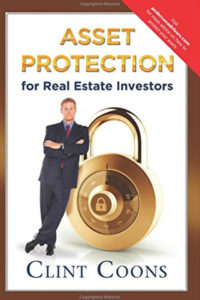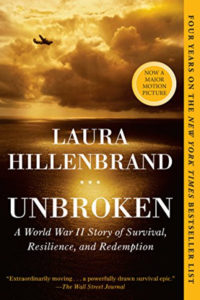As a real estate investor, you should understand asset protection as much as possible because no matter how much you make or how many properties you have, a lawsuit is stressful when you have to deal with it. Join your host Matt Fore as he dives deep into a conversation with Clint Coons about real estate investing and protecting your assets. Clint shares a practical approach and best practices in setting up your business for estate planning and passing that down to your heirs. His strategies have evolved, and in this episode, he explains them in detail so you can start taking that step in ensuring your future is protected. Is there a difference between insurance and asset protection? Listen to find out and learn more about IRA and qualified retirement plan investing strategies.
Clint Coons is one of the founding partners of Anderson Business Advisors, a real estate investor, and the author of Asset Protection for Real Estate Investors. Clint brings a fresh approach to utilizing the law to protect investors and lower their taxes. One of the things I love about Clint is his ability to take a complicated law or structure and explain it in crystal clear terms. This, combined with his dynamic speaking, has made him one of my favorite educators in the real estate space. Today we are going to dig into the best way to structure your assets to not only protect you but to help you grow.
Links:
– Clint’s Youtube Channel: https://www.youtube.com/channel/UC5GX-U6VbvMkhSM1ONBiW8w
– Anderson’s website: https://andersonadvisors.com/
– https://www.linkedin.com/in/clintcoons/
– https://www.instagram.com/andersonadvisors/
—
Watch the episode here
Listen to the podcast here
Asset Protection For Real Estate Investors With Clint Coons
Our guest is Clint Coons, one of the Founding Partners of Anderson Business Advisors. He is a real estate investor and author of Asset Protection for Real Estate Investor. Clint brings a fresh approach to utilizing the law to protect their investors and lower their taxes. One of the things I absolutely love about Clint is his ability to take a complicated law or structure and explain it in crystal clear terms. This, combined with his dynamics and his speaking abilities, has made him one of my favorite educators in the real estate space. We’re going to dig into the best ways to structure your assets to not only protect you from any potential lawsuits but to help you grow as well.
—
Clint, welcome to the show.
Matt, thanks for having me on.
We’d like to start with the difficult questions here. What’s your favorite ice cream?
You’re probably going to say this is boring, but it’s vanilla.
That’s it, plain vanilla?
I make ice cream. I’m always making different flavors, cherries with goat cheese. I enjoy it, but it always comes back and people say, “What do you want?” “I’ll take a scoop of vanilla.”
Is your homemade vanilla recipe better than Ben and Jerry’s or anybody else out there like that?
It depends on what type of base you’re using to make it. Is it going to be a custard base or a non-custard base, more of a cream milk base? It depends on your flavor profile. I do like it. I prefer custard-based ice cream. It’s my preference lower ice content in it when it freezes. I got started a long time ago, and it’s probably too geeky for you, but I bought a machine from Italy. This is before they had the machines over here that have a compressor in them. That would freeze it as they spin it. They spent too much money on it, but I still have it to this day, probably fifteen years later.
This is the deepest we’ve ever got on ice cream. I appreciate you coming well-prepared to take us down this rabbit hole. For our readers out there, what’s the scoop? What do you do now?
I’m an attorney, of course, but I’m also a real estate investor. I have a firm that I started with my partner, Toby Mathis, back in ‘99. We help real estate investors protect their assets and also reduce their taxes. Our firm is comprised of both attorneys that we’ve hired and business strategists but also tax preparers. We bring a unique approach into the industry. We’re not only showing you how to set up the right structures, but we’re also discussing the tax advantages of setting up the structures the right way.
The other side of it is what I always call business planning. It comes from my own experience in real estate investing. I got started several years ago, actively investing with my partner and I. Now we have well over 300 properties, close to 600 doors, and different asset classes. The issues that I ran into in building my portfolio, working with lenders, knowing how to set up your entities the right way, and providing them information are instrumental. That’s the business side that many investors don’t understand. If you make your tax returns look a certain way, you’re probably going to get that through that underwriter a lot quicker than if you come to them with a mess. I used to make those mistakes myself.
I cannot wait to dig into there, but before we get there, tell our readers where your journey began in real estate.
My journey began as an indentured servant for my father. He’s an avid real estate investor. He wanted a couple of kids to go out there and buss tail on his properties. In fact, I was talking to a guy in the gym. We’re talking about people that go out on the road and run. I said, “When I was a kid, we’d be driving down the road at 6:30 AM and my dad would look over and see somebody jogging on the side of the road.” It was 1979. He’d say, “Look at that lazy ass. He has to go out there and run because he doesn’t have any work to do. He should be out working on a property or something.” That’s how I got my start.
Insurance is designed to replace risk of loss. If something were to happen to your property, you need it.CLICK TO TWEET
I was a framer in college and thought I was going to become a contractor because I did enjoy building and remodeling. The turn of the economy here in Washington state changed my perspective, not to mention it rains all the time. Who wants to sit out there and work on a roof in November when it’s pouring down rain? Back then, they didn’t have tie-offs to protect you from falling off. You rolled off and landed on your feet if you’re lucky. I went on to law school.
It’s funny you say that the three times I’ve been to Washington, it’s been sunny, not a cloud in the sky. It’s clear. I’m like, “This is beautiful. Why don’t more people live out there?”
Yeah. You always come in July, August or September.
Did your dad ever own real estate, too? Where did you get the bug to buy real estate and invest in it?
He’s an investor. I grew up working on all his properties. He’d buy homes for a buck, move them, and we’d have a cinderblock foundation hookup all the utilities and do the remodel, fix the yard, and rent the property out. There are a lot of different aspects. He had apartment buildings and an old hospital that we remodeled into an apartment building, 50 to 60 units. That’s where it came from. It’s what I grew up doing. If I wasn’t in sports, I was always working on his properties.
A hospital to multifamily conversion might be the most unique conversion I’ve heard out there.
It was interesting, especially when the tenants moved out. The treasures you would find as a boy going through there. I turn around and sell at school. I was running little side jobs until I got caught and got suspended for a day.

Asset Protection: Asset protection is similar to insurance, but if we are to create a structure and that asset is the cause of the plaintiff’s injuries, then your total risk of loss is going to be the value or the equity that you have in that entity.
I’ve heard of this side hustle, can you tell our readers what the side hustle was?
Porn mags, I’d sell them for $15 to $20. They bought it in front of me, and some kid got caught at home, “Where did you get it?” “Clint.”
I want to dig into asset protection because that is an area where I have learned a lot from you, your YouTube channel, and some of the content that you’re producing. Thank you for that. It’s super valuable and very in-depth on a number of different topics. Most of our readers out there might be new to what is asset protection and why doesn’t insurance cover assets that you have in your rental portfolio? Can you start us off with, what’s the difference between insurance and asset protection?
Insurance is designed to replace the risk of loss if something were to happen to your property. You need it if your property burns down. I had two properties burned down. The insurance stepped up and covered us there. You need it for that. We also use insurance to protect against liability exposure if somebody is hurt on our property or there’s an injury that results from maybe our negligence. We’re going to have to be negligent to the property itself, that’s designed to protect you and payout on those claims. The issue with that is you have policy limits and whether or not that insurance policy that you acquire is the claim’s going to exceed your policy limits.
More importantly, are they even going to protect you in the event that you find yourself in a situation where you’re being sued? Many real estate investors think in terms of liability, such as slip and falls. There are a lot of those, but there are other areas as real estate investors where you’ve got problems with lenders. Let’s say they come after you if you default on a loan or a lease agreement because you’re running a business, those types of claims.
Dog bites, depending if your tenant has a vicious dog in the backyard, are classified under your policy that you won’t find out about whether or not the claim where the injury takes place whether it’s even covered under your policy. There are a lot of things there that don’t play or aren’t covered on your policy. Real estate purchase and sale agreements that you violate because you decide to walk away from, you can get sued by a seller in that scenario.
Asset protection is similar to insurance, but what it’s designed to do is cap your loss, so you know going into it. If I create a structure and that asset is the cause of the plaintiff’s injuries, my total risk of loss is going to be the value or the equity that I have in that entity. We want to focus on minimizing the amount of assets we put at risk to a potential creditor. With insurance, it could be beyond policy limits. You’re still liable or not even covered.
You have to focus on the purpose of why you’re investing. You want to generate that extra income so you don’t want to risk it because one lawsuit wipes all that out.CLICK TO TWEET
Whereas with an asset protection plan, you know that even if you aren’t covered, your assets are going to be protected from your personal liabilities. If something happen with the asset itself, your risk of loss is going to be kept at your equity in the property. That’s in a nutshell how I look at this asset protection insurance. You need both. People think they can dump their insurance because they go with asset protection. That’s a reason for the court to ignore it all and come after you personally.
I’ve also heard grab an umbrella policy over your insurance to protect you over the capital limits, etc. I would beg to say that most people out there aren’t reading the T’s and C’s of their insurance policy. An insurance company is in the business of making money, which means that they’re in the business of denying claims or drawing out claims if possible. If you’re in this business long enough, I feel like it’s not a matter of if you’re going to get sued, it’s when you’re going to get sued. Having that extra layer of asset protection can be super helpful in those situations.
In an umbrella policy, remember it doesn’t pay out unless the underlying policy pays. The underlying policy denies coverage and your umbrella policy backs away, they say, “We don’t have to do anything. It’s predicated on the first policy covering.”
One of the things you talk about is not only how do we asset protect, but how do we structure our business so that we can continue to grow as well? Banks like to have their little checkbox that you have to meet in order for them to give you a loan. Can you talk us through how some of the best practices on how you structure businesses to enable them to grow?
One of the things about real estate investing is that most people like to look for QM mortgages because they’re going to get that favorable interest rate. Those are underwritten by Freddie and Fannie. When you approach your broker and they’re going to provide you a loan, you know when you’re going to go through Freddie Fannie qualifications underwriting guidelines. The thing about it that a lot of real estate investors don’t realize is that if they take the approach that, “I’m going to insurance up. I’m going to hold assets through disregarded LLC so I don’t have to file a tax return to minimize my costs.” They’re limiting their ability to grow. Why is that?
Under Freddie Fannie guidelines, when you’re using those QM products, Qualified Mortgages, what happens is that the underwriter or the lender is bound to basically discount your income from your real estate by 25% to 30% so they can sell that to Freddie Fannie. If you make $100,000 a year in rental income, you lost $25,000. How does that impact you? Your debt-to-income ratio on this deal you’re trying to close on can hamper your ability to grow. What we do tell people, and I like to structure it, is to hold all their investments through different LLCs or a one holding company. Its sole purpose is to change where that information shows up on your tax return.
In the first example, it all shows up on Schedule E Page 1. All your properties get listed out. Those get cut 25% for vacancies. That’s what happens with Freddie and Fannie. If you hold all those same investments and they flow through a partnership return, a 1065, which gives you a K1, it still shows up on your Schedule E, but it shows up on Page 2. It’s a line item there essentially. What does that mean? When you’re looking to get a loan, they’re going to look at that information. They’re not required to discount that number like they’re required to discount the information listed on Page 1, which would be all your properties.

Asset Protection: If you’re going to go to all the trouble to set up the structure, then you make sure that you’re doing it the right way.
You get a 25% boost in your income, which helps you on the debt-to-income side. What I look at is if you’re a married couple, the biggest mistake I see married couples make if they’re in investing is that both of them go on the loan. If you’re going to use those QM products, they’re typically capped at ten per investor. If both of you are going on the loan, you limited your total pool to ten properties. If you do one husband’s name, one in the wife’s name, you can go 10 like this, and you can gross up to 20 properties and still maintain those more favorable interest rates. It’s looking at the investor and helping them design a course with their investing to ensure they look better to lenders and acquire as many properties as they can with QM lending.
Two comments I want to pull there is one you were talking about the then Fannie and Freddie QMs, Qualified Mortgages. That’s exactly what happened to me. I got to the stage where I had ten single families and it’s tapped out on my loan ability. You can go out and find private money, credit unions, community banks, etc., but for the active W-2 employee to do that as well is very difficult. The second thing you talked about was this idea of pooling them into a holding company. A quick question on that, is that a series LLC, or is that a C-Corp? Talk us through how you structure that holding company.
Typically, what I’m going to do with an investor is I’ll look at where the property is located. Wherever the property is located, that’s where we’re going to create the structure. If you had seven properties in Texas, Texas is a series state. We would create a Texas Series Limited Liability company and puts each property into its own individual cell. Now that Texas company is going to be owned by a Wyoming Limited Liability Company.
The Texas entity is disregarded. It wouldn’t have to file any federal tax returns, but it rolls up into a Wyoming LLC. That’s treated as a partnership to get the benefits I described. When I create a structure for clientele that are invested in real estate, we typically start with a Wyoming entity. Its sole purpose is to own whatever LLCs, wherever we’re creating them, all point back to that. It gives you a number of benefits. Number one being privacy. I don’t need my tenants calling me up and telling me how pissed off they are at the property manager that’s managing the real estate.
They’re looking me up, so I don’t want my name on the entity. They don’t know where I live or how to contact me. Many people who create their own LLCs are listed all over either list as a member, managers, organizers of the company, or registered agents. You don’t give yourself much protection from a disgruntled tenant who wants to destroy your character can do so on social media, find out where you work, call your employer, or harass them. That’s important.
You get the added benefit of having that partnership return. You could have 50 entities and only have to file one tax return. There are some added asset protection benefits. If I got sued individually in Wyoming, the way we create our structures with certified security for the membership interests makes it very hard to levy on that asset, absent going to Wyoming. The only remedy is a charging order. Our structures are designed around protecting the client from whatever goes on with the real estate, but also protecting their investments from whatever mistakes they make in their life.
I’ve had clients where a kid goes off to college and he’s in a car accident within two weeks. The next thing you know, the parents are in their 60s and they’re sued into bankruptcy. They’re having to go back and start their careers all over again because of a freak accident. They lost all of their real estates. It’s things like this why protection, I believe, is so important.
People make the mistake of getting so hung up on the asset protection aspect that they lose sight of what they should be doing, which is investing.CLICK TO TWEET
This is also why I think you don’t go to LegalZoom.com and file an LLC because there are a lot of moving pieces to this. Through some of your webinars that you do on Saturdays and your educational content, I’ve recognized that if you have any co-mingling or bank accounts, or you take the money without filing it on your bookkeeping correctly, you can get yourself into some trouble here.
That’s key. It’s not only keeping good books and records, but it’s also about ensuring your operating agreements are there to protect you. A lot of people don’t understand the language that is necessary because unless you get sued, it’s never going to see the light of day. You could scribble something on a piece of paper, call it an operating agreement, and you’re going to be great until somebody asks to see it. They’re going to point out deficiencies.
There’s a case out of Utah where a guy set up a Nevada LLC, and basically, the whole structure collapsed on them because he did a number of things. He didn’t understand how that operating agreement was intended to operate. The plaintiff that was suing him personally had this judgment against him. They started eviscerating everything that he’d done with his LLC. They said, “This isn’t your operating agreement.
You didn’t follow your operating agreement. Therefore, that move doesn’t count. This move doesn’t count.” They went to a judge, and the judge gave him access to everything he had inside of there. It is important in the event of a lawsuit. If you’re going to go to all the trouble to set up the structure, make sure that you’re doing it the right way.
This is where the return on investment too. It may cost you a couple of hundred or thousand bucks to set this up correctly, but it could save you millions down the line. One of the things you talked about that I don’t want to breeze over was putting properties into cells. Is that because we want to isolate them away from each other? What’s the thought process behind that?
It’s a good question and something that my own strategies have evolved over time. When I use the series cell structure, each cell is treated as an independent entity for asset protection purposes. If you had six properties in Washington State, I would set up six separate limited liability companies for you. If you had 6 properties in Texas and recognized a series LLC, I’d set up 1 LLC with 6 cells. A lot of investors, when I talk about it in those terms, they start thinking to themselves, “What’s that going to cost me?” They’re not looking at it from the right point of view, in my opinion. I used to do this. I would tell investors, “Group your properties no more than $250,000 to $400,000 in equity per limited liability company and a maximum of five properties.” I was focused on equity.
When I started actively investing, I started realizing that the approach misses the whole concept of my investing. My investing is not for equity. I have a great portfolio of properties in Houston and it’s tripled in value. You look at it and go, “On paper, that’s phenomenal.” Does that translate into a different standard of living for me? Not at all because my rents are what they are. You could have $8 million or $10 million worth of a real estate. If your rent is what you’re living on, that’s what you’re trying to protect because you’re not eating your equity.

Asset Protection: You can take on more risk when you’re starting out. You don’t know what you don’t know. That’s when you’re prone to make the majority of your mistakes as well. So you need protection even more.
I realized that as a residential real estate investor, on my residential side, I want to make sure that those properties are in separate LLCs. If something did happen, I don’t lose 5 properties because if I lost 5 properties that throw off $6,000 a year and a total of $300,000 equity, I’ve lost $30,000 income. That’s why we’re investing. That’s where your spouse was able to quit her job, and now, she’s at home. She’s focused on real estate full-time. Whatever your why is for putting the investments together to generate that extra income, do you want to risk it? One lawsuit wipes all that out.
I can lose $6,000 if one property goes down, but $30,000 is a huge hit. The income is what I’m focused on. I tell people, they say, “Clint, 300 properties, does that mean you have 300 LLCs?” Hell no. That’s stupid. There comes the point where you have critical mass. Let’s say I have 30 limited liability companies with 10 properties per LLC. Those ten properties maybe equate to $500,000. I could lose all 10 and take a $50,000 hit, but I have 29 other limited liability companies thrown off $50,000 a year. It’s not going to change my lifestyle.
If you have five properties and you take that hit and lose all five properties, it’s guaranteed to change your lifestyle. I tell people, “When you’re investing, there comes a time when you get up to 15 or 20 properties and start grouping them.” Now, you can take on more risks. When you’re starting out, you don’t know what you don’t know. That’s when you’re prone to make the majority of your mistakes as well. You need protection even more so than someone at the stage of my investing career because I know more now than I did when I first got started.
I’m a strong advocate of maybe your first one, which is you don’t need an LLC. You might be okay. Once you start getting up to 3 to 5, you need to take this stuff seriously to make sure that you’re protecting your income and the value of the properties longer-term.
You brought up something there too. People always ask me, “When do I create the limited liability company?” If you’re using a QM to finance your deal, there’s no reason to run out and set up an LLC because you’re not going to be able to close in that LLC anyway if it’s residential property. You’re closing in your own name. Focus more on getting the deal done before you focus on setting up that limited liability company. I see a lot of people make that mistake. They get so hung up on the asset protection aspect of it that they lose sight of what they should be doing, which is investing.
You mentioned not being able to close an LLC. Is that because usually, LLCs have to be established for two years before they start looking at your bookkeeping and your P&L?
Freddie and Fannie’s guidelines are residential, four units or less. You can’t close a business entity. You can transfer it in after the fact or after closing. They changed their underwriting guidelines in 2018. It was 2019 for the other to allow that. People say, “It violates the due on sale clause, and they could accelerate your mortgage.” That’s no longer a concern. Your broker won’t allow you to close in an LLC because they got to sell it. Freddie and Fannie want to verify who the borrower is. They need complete transparency.
The most important thing you’ll ever do is creating a living trust.CLICK TO TWEET
Whereas when you go beyond 4 and you’re doing a 5 or 6, or something like that, you’ll close in the LLC. When you close in a limited liability company using a commercial loan and when you have a commercial loan, you’re going to pay a higher interest rate. That risk premium is built into it and allows you to use business entities.
It’s the best answer I’ve heard on that so far. Thank you for that. I want to switch us to estate planning and passing businesses down. I feel like a lot of us are focused on growing while we’re in this stage of life, but we’re not thinking about the reasons why we’re doing it in multi-generational wealth. Can you give us some best practices on how we should set up our businesses for estate planning and passing these on down to our heirs?
The most important thing you’ll ever do is create a living trust. What do we intend to focus on first, the LLC is and puts together the business entities, and the estate plan comes second. You can work 30 to 40 years building up a sizeable portfolio, not having a state plan in place at the time you get clipped as you’re walking down the street, and you’ve killed. What’s going to happen to it? We all think that our kids are going to take it, run it, and manage it the right way. There are things that occur in their lives, like divorces and lawsuits that could seriously jeopardize your assets. I’m a firm believer in creating a plan that is going to preserve what I have.
I want to take it a step further and create generational wealth, not just for our kids but for our children’s children. The only way you can do that is to ensure that those assets remain in trust. They’re going to be there for multiple generations continuing and producing income. My kids are incentivized to invest. Our daughter is closing on her fourth property now. She is 24 years old. She’s going to pick up her fourth rental property. She has the advantage that I buy packages. I peel a few off and sell her some properties, but still, she sees it and understands what she wants to do. At the same time, when we’re no longer here, my wife and I, it’s going to be there for them, but they don’t have the ability to sell those properties.
It’s built into the kid sell for you, depending on circumstances, but I want to preserve and protect them. If they go get divorced or get involved in a lawsuit, the issue of those assets being liquidated and dispersed out isn’t going to happen. I know that they’re always there. You incentivize the kids to do things in life. We told both of them, “If we pass away and you say, ‘There’s $1 million in income coming in every year. We’re going to sit around and play video games or work in a candle factory because I don’t want the stress.’” Whatever you make, that’s all you’re going to receive from the trust. You build incentives in there to keep them motivated. I know I’ll never have a problem with that with our kids, but you never know down the line. It’s two generations.
One of the things that popped up in my life is a couple of health scares that I made a state planning and thinking about this more pertinent. I’m going to ask a direct question for personal use. What are some of the things we should be thinking about when we’re entering estate planning? I’ve got rental properties, LLCs, assets, and all of that stuff. How should I even be approaching that when I’m thinking about this conversation?
Who’s going to control it? This is a conversation my wife and I have with our son. He’s an attorney and working for Deloitte. He’s going to come over here and start working for me and Anderson. He is under the impression at one point in time that since he’s an attorney, he should be in control. The thing about it, as I explained to him, is you don’t know enough about real estate investing yet where I would feel comfortable putting you in control of the portfolio. Your sister, on the other hand, knows a lot more than you based on her investment. She’s been a property manager and stuff when she was going to college, but at the same time, I wouldn’t want to put those kids at odds with one another one is making all the control decisions.

Asset Protection: There are things that occur in their lives. There are divorces and lawsuits that could seriously jeopardize your assets. Create a plan that is going to preserve what you have.
When you’re putting together a plan, you look at your assets and say, “Maybe I need different people to manage different assets.” When it comes to distributing those assets, you have somebody else that understands your family and your wishes, and they handle the distributions. The idea that you appoint your children as the successor trustees, the people are going to manage everything is short-sighted depending on what your goals are. I would look at that as creating your plan.
What I would look at is, is it generational that you’re trying to build, or do you want to leave it to your children or your beneficiaries? They can take it from there and do what they want with it. You can always change it as you go about because your estate plan is revokable, amendable, re-stateable, anything you want to do. Those are the key issues that I typically tell people to focus on. Your kids have different phases in life. Boys versus girls mature at a different rate. I know I did. I’ve seen it a lot, even with my son. You want to make sure that you recognize that. You’re helping them, but you’re not enabling them.
I’m trying to think for the reader out there that’s got a couple of properties. Anything else that we missed that we want to make sure we highlight before we end our last segment here?
If you’re an investor, starting out, trying to figure all this stuff out, and you’re seeking advice, surround yourself with people who do what you do. The biggest mistake that I see investors make is they come to us and have created some structures, and I’ll ask them, “Who set this up for you?” “This attorney did. I dealt with it with a high-end client.” The attorneys didn’t know what they were doing. I called him out and we got on a three-way call because this client spent over $30,000 for a structure that will not work for them. You can suss this out on your own by asking questions.
For example, if you were into house hacking, you go to an attorney’s office to create a structure for your house hacking, and ask them, “What do you think about house hacking? How many clients of yours are in the house hacking?” If they think you’re engaging in illegal activity, that should be a sign that this is not the right person for you to put together your structure. Find people who are doing what you’re doing and seek guidance from them is the most important thing for investors.
One of the best pieces of advice I ever got. Early on in my journey here is if your lawyer doesn’t invest in real estate, get a new lawyer. If your CPA doesn’t invest in real estate, you better get a new lawyer because they’re the ones that are going to help you save a lot of money. I want to switch us to our last round here. We’re calling this the Five Toppings. Our first one is what is your favorite book or what’s a book that you’ve read that’s given you a paradigm shift?
My favorite book was Unbroken by Laura Hildebrand and Louis Zamperini. It’s how life can throw at you a number of challenges. It’s how you approach those challenges and persevere that ultimately is going to build your character and define who you are at the end. That’s my favorite book that I’ve read. I’m thinking about rereading it again.
It’s how you approach challenges and persevere that ultimately build your character and define who you are.CLICK TO TWEET
Our second one is, I believe that the person you become ten years from now is directly correlated to the habits that you have and the things you do every single day. What are some of the habits that you do every day?
I get up in the morning. I typically get up at 4:30 and read Fox News, Wall Street Journal, or Washington Post. I looked through all those news outlets to see what’s going on out there and what’s important for what I do in the business. I’ll go to the gym and go to work. It’s pretty much regimented that I do the same thing day in and day out and staying on that schedule. It helps me focus when I do that.
Do you have a favorite gym exercise?
It’s working on my legs. My wife’s always complained that I don’t have a big enough butt. She knew how to fill out my pants. I’m doing a lot more squats now than I ever used to and deadlifts.
Go running and cycle. It’s been the best thing for the glutes.
I had foot surgery a number of years ago. I used to run on a treadmill a lot, and they said, “You got to shorten the stokes.” I was having metatarsal problems and that messed me up even worse.
Our third one is, what’s the best piece of advice you’ve ever received?

Asset Protection: When you hire people, you don’t want to be the smartest guy in the room. Find someone who’s going to challenge you and help you grow because when you’re green, you’re going to grow. When you’re ripe, you’re going to rot.
It was done in a negative way. There was a guy when I first started out, and I started working for him. He was a business associate, and I was offering some advice. He looked at me and goes, “How much did you make last year?” I said, “I don’t know, $150,000.” He said, “I made $10 million. When you make $10 million, that’s when I’m going to start taking advice from you and taking it seriously because you’re not in my shoes. You may be bright and are getting up there, but you’re not there yet.” He basically told me, “I have more to learn from him, and he could learn from me.”
It stuck with me. When you hire people and I look for people, I don’t want to be the smartest guy in the room. I want there to be other people that are smarter than me because that’s going to challenge me and make me want to continue to grow. When you’re green, you’re going to grow. When you’re ripe, you’re going to rot. That’s the way it works in life. If you’re not challenging yourself, that’s why I like to read so much. I feel like I’m always moving forward, so not staying stagnant or going backwards.
It’s that age-old advice. You’ll never be criticized by someone doing more than you. It’s always by someone doing less than you.
That’s true. I run the business that way as well. We’ve built it up to 500 employees with offices in different states. Having a key C-Suite of individuals is important. I realize when I go around them that they know more than me about things, and I’m glad I have them there.
Our fourth one is, what’s the thing you’re most proud of in your life?
I’m going to celebrate my 30th wedding anniversary in 2022. It’s unheard of. Not many people can say they’ve been married that long anymore in our society. That’s a lot of people be viewed as transitory. I was able to stick with it and persevere. I think a lot of the same things that I bring to the business and in my marriage as well, our marriage that we had with. We looked at it as a journey and that you had to stay invested in it. When you hit a difficult spot, you don’t turn tail and leave. I’ve been through those with this firm. You go without taking a salary for 6 to 7 months to keep the doors open and keep the employees paid. It could very easily shut it down or have none of the things that made me more money. I was focused on and committed. That’s what I’m most proud of.
Our last one is, if you could sit down and do a bowl of ice cream with anyone, dead or alive, who would it be and why?
If you’re an investor starting out and you’re seeking advice, you have to know that it’s important to surround yourself with people who do what you do and seek guidance from them.CLICK TO TWEET
If I could do that, I would say it would be Anthony Scalia. He would probably be the one that I would like to sit down and have a conversation with.
Why?
He had a phenomenal grasp of the law and how it is applied. You look at what’s going on with decisions in the Supreme Court. In the way his mind worked, I always relish reading the opinions that he authored because they were so logical in nature, the way he approached them and thinks. I try to think the same way. When I have conversations with people, I’m not afraid to say, “I don’t know it.” A lot of people might have opinions on stuff they don’t know about.
One of the ways I typically disarm people is if I read it was an opinion and say, “Have you read the opinion?” “No.” “That pretty much sums up your knowledge of what was stated and the reasoning behind it.” If you haven’t taken the time to invest and educate yourself, how can you form an accurate understanding or opinion of something? I’m guilty of it as well. We’re quick to say, “This is the way it is,” but you don’t know. I liked his measured approach. Some people would say it isn’t, but the way he reasoned things out.
I love that because regardless of what side of a spectrum or an issue you’re on if you have uninformed opinions, go read the opinion first. I got to say businessman real estate investor. I did not expect you to go back to your roots and name an attorney or a Supreme Court justice to give him the proper respect he deserves.
I would have said Bork. He was right up there as well, but most people don’t realize who he is.
Clint, it’s a fantastic conversation. I got to say you’re one of the most valuable people in this industry who I’ve learned from a distance for a very long time. I’m honored to get this chance to get to speak to you. If our readers wanted to reach out and learn more about Anderson Business Advisors and everything you guys got going on over there, where’s the best place we could point them?
If they’d like to, they can attend a Tax and Asset Protection Workshop we teach for real estate investors, my partner and I. We hold it every couple of weeks. It’s on a Saturday for seven hours. You’ll sit down and it’s via Zoom. All they need to do is, go to Aba.Link/Ice.
I’ve attended one of those before. Fantastic content for anybody out there that’s learning more about taxes and asset protection. Clint, thanks for coming on the show.
I enjoyed it. Thank you for having me. I appreciate it.
Important Links
- Anderson Business Advisors
- Asset Protection for Real Estate Investor
- YouTube – Clint’s YouTube Channel
- LegalZoom.com
- Unbroken
- Aba.Link/Ice
- https://www.Instagram.com/AndersonAdvisors/
- https://www.LinkedIn.com/in/ClintCoons/
About Clint Coons

Clint Coons is one of the founding partners of Anderson Business Advisors, a real estate investor, and the author of Asset Protection for Real Estate Investors. Clint brings a fresh approach to utilizing the law to protect investors and lower their taxes. One of the things I love about Clint is his ability to take a complicated law or structure and explain it in crystal clear terms. This, combined with his dynamic speaking, has made him one of my favorite educators in the real estate space. Today we are going to dig into the best way to structure your assets to not only protect you but to help you grow.







